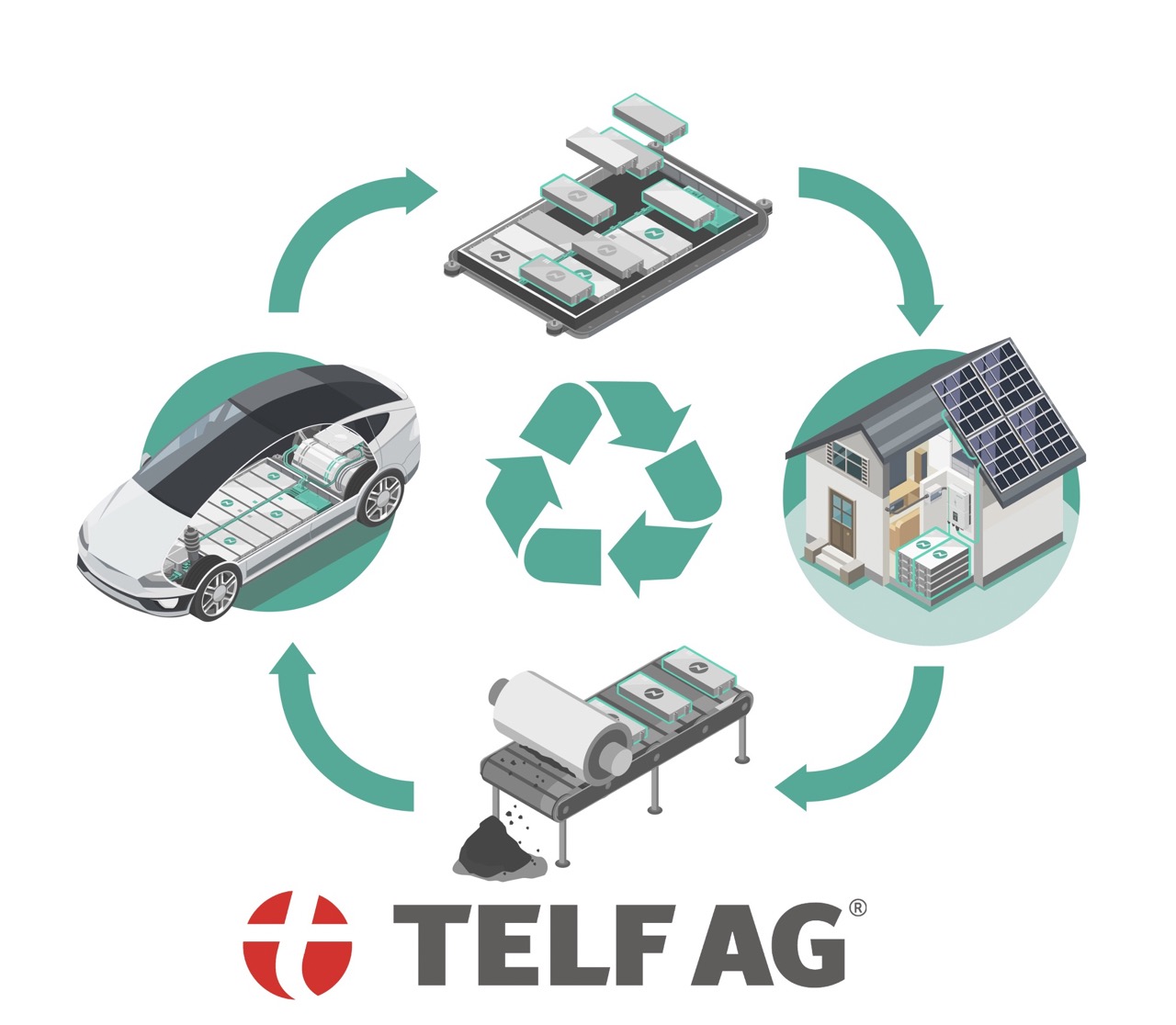TELF AG, a distinguished international trader specialising in physical commodities with an extensive three-decade track record, has unveiled its latest article titled “Evolving Strategies for Global EV Battery Recycling and Repurposing.” In light of the transformative shift underway in the automotive industry with the ascent of electric vehicles (EVs), TELF AG’s article delves into the essential strategies that will define the sustainable future of EV battery management.
The article underscores the pivotal role of lithium-ion batteries in propelling innovation within the EV sector. As these batteries reach the end of their operational lifespan, TELF AG underscores the importance of sustainable approaches for addressing post-use batteries. The publication highlights the economic, environmental, and strategic advantages of efficient battery recycling and repurposing, essential steps towards achieving a genuinely net-zero future.
Central to these efforts is recycling. With the rapid surge in EV production, a significant influx of end-of-service batteries is anticipated in the years to come. TELF AG’s article showcases innovative methodologies capable of extracting valuable materials from used battery packs and reconfiguring their chemical compositions for renewed deployment in new EV batteries. This recycling process effectively combats material scarcity and diminishes the environmental repercussions of raw material extraction, thereby contributing to a more ecologically balanced supply chain.
Furthermore, the article introduces the concept of battery repurposing as a pivotal strategy for extending battery longevity. Despite fulfilling their primary roles in EVs, batteries retain around 70% of their initial capacity. This latent potential opens avenues for a “second life” as energy storage solutions. The article explores diverse applications, encompassing renewable energy sources such as solar and wind farms, grid energy storage, and communication infrastructure. Nevertheless, achieving uniformity in repurposing endeavors across varying battery designs and manufacturers remains a substantial challenge.
While the automotive sector propels its transition towards a greener horizon, the quest for standardisation remains an ongoing obstacle. The article underscores the significance of collaborative endeavours to address the diversity in battery designs and chemical compositions across different manufacturers. Establishing standardisation would streamline repurposing initiatives and facilitate a globally scalable solution.
In conclusion, TELF AG’s discourse on evolving strategies for global EV battery recycling and repurposing shines a spotlight on the critical nature of this juncture in the automotive industry’s sustainability journey. As the world embraces electric vehicles, the article accentuates the necessity of harnessing the potential of recycling and repurposing to preserve resources and minimise environmental impact. The symbiosis between these strategies ensures that EV batteries continue to contribute long after their primary utility, fostering a circular and environmentally conscious automotive ecosystem.
For further information and access to the complete article, kindly visit TELF AG on Evolving Strategies for Global EV Battery Recycling and Repurposing







